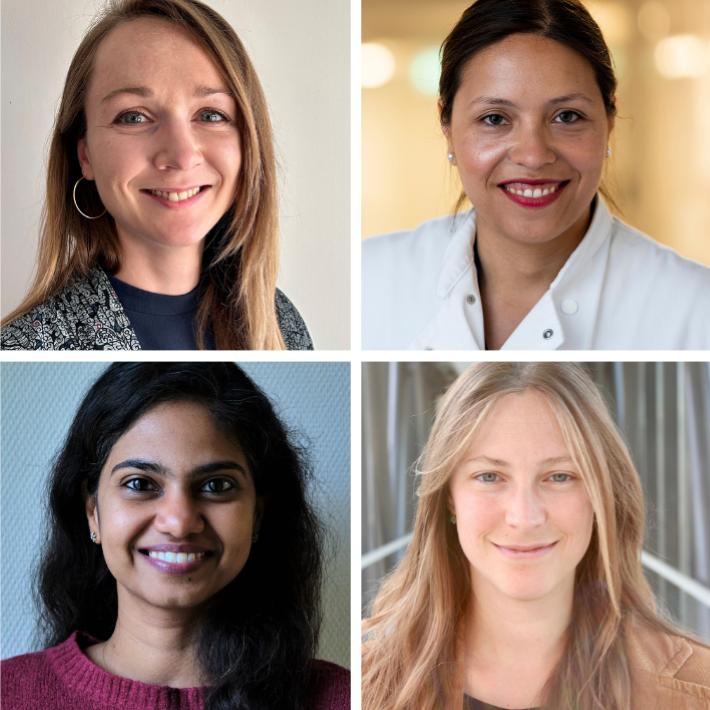Four LUMC graduates receive prestigious Veni grant
Top: Lena Václavu and Ilona Dekkers. Bottom: Prarthana Mohanraju and Virginie Stevenin.
&width=710&height=710)
The grant worth up to 280,000 euros will allow the laureates to further develop their own research over the next three years. The person-linked, scientific grant is part of the NWO Talent Program, which focuses on recently promoted researchers.
Kidney disease and heart failure
Chronic kidney disease and heart failure often occur simultaneously. Dekkers is receiving the grant for her research into the link between chronic kidney damage and heart failure with preserved pump function (ejection fraction). To do so, she uses state-of-the-art imaging technologies such as perfusion PET/CT of the heart and perfusion MRI of the kidney.
Genetic modification
Genetic modification has unprecedented potential in the development of new therapies, among other things. But unless efficiency, precision and safety improve, this potential cannot be realized. Mohanraju wants to use the Veni to develop a platform to efficiently develop genetic modification technologies. She wants to do so using a therapeutic application for the genetic muscle disease Duchenne Muscular Dystrophy.
Salmonella
Intracellular bacteria, like salmonella, are bacteria that enter host cells and then reside and replicate inside the cells of their host. This is possible because bacteria hijack intracellular molecular signals from the host. Stevenin will use the grant to investigate how bacteria manipulate the signals from a (host) cell's small protein ubiquitin to reshape a cell's organization as desired
Blood supply and MRI
MRI scans can be done in hospitals to measure how well and how fast the brain receives blood. Unfortunately these scans are hardly used in practice because they take too long and do not present the information properly to the doctor. Václavu is using the grant to develop a new, faster version of perfusion MRI scans. This will allow doctors to see how well and how fast a patient's blood supply is.
In total, the NWO is awarding 188 Veni grants this year. More information about the grants and award winners can be found on the NWO website.